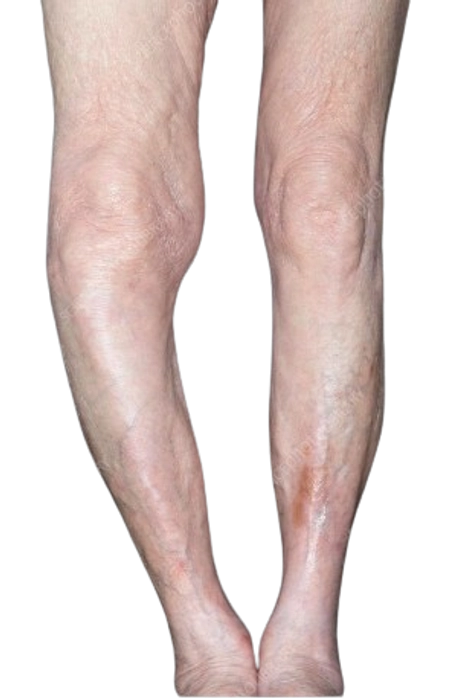Introduction
Paget's Disease of the Bone is a chronic disorder that disrupts the normal cycle of bone renewal, leading to the development of abnormal bone tissue. This can cause bones to become enlarged, misshapen, and weak. At Dhyan Healthcare, we are committed to helping you understand and manage Paget's Disease effectively.
What Causes Paget's Disease of the Bone?
The exact cause of Paget's Disease of the Bone is unknown, but several factors may contribute to its development:
- Genetic Factors: Family history of the disease.
- Viral Infections: Previous infections may trigger the condition in genetically predisposed individuals.
- Age: More common in people over the age of 50.
- Ethnicity: Higher prevalence in individuals of European descent.
Symptoms of Paget's Disease of the Bone
- Bone Pain: Often the most common symptom, particularly in the hips, spine, and skull.
- Bone Deformities: Enlarged or misshapen bones, bowing of the legs.
- Fractures: Increased risk of bone fractures due to weakened bone structure.
- Joint Pain: Resulting from the stress on joints near affected bones.
- Hearing Loss: If the skull is affected, pressure on nerves can impair hearing.
- Nerve Compression: Enlarged bones can compress nerves, causing pain, tingling, or numbness.
Diagnosis
Accurate diagnosis involves a thorough examination by a healthcare professional, which may include:
- Physical Examination: Assessing for bone pain and deformities.
- Blood Tests: Elevated levels of alkaline phosphatase, a marker for bone turnover.
- Imaging Tests: X-rays, bone scans, or MRIs to evaluate bone abnormalities and disease extent.
Treatment Options
Managing Paget's Disease of the Bone focuses on controlling symptoms, slowing disease progression, and preventing complications. Here’s a comprehensive treatment plan:
-
Medications
- Bisphosphonates
- Prescription: Alendronate, risedronate, or zoledronic acid to inhibit bone resorption.
- Benefits: Reduces bone pain and slows disease progression.
- Calcitonin
- Prescription: Calcitonin injections or nasal spray.
- Benefits: Helps regulate bone metabolism and relieve pain.
- Pain Relievers
- Prescription: Over-the-counter or prescription pain medications such as ibuprofen or acetaminophen.
- Benefits: Alleviates bone and joint pain.
- Bisphosphonates
-
Physical Therapy
- Prescription: Customized exercise programs to maintain mobility and strengthen muscles.
- Examples:
- Strength Training: Exercises to build muscle strength around affected bones.
- Stretching Exercises: Improve flexibility and reduce stiffness.
- Low-Impact Aerobics: Activities like swimming or cycling to maintain cardiovascular health without stressing the bones.
- Benefits: Improves overall physical function and reduces the risk of falls.
-
Orthopedic Supports
- Prescription: Braces, splints, or orthotic devices to support weakened bones and joints.
- Benefits: Reduces pain and prevents further deformities or fractures.
-
Surgical Intervention
- Prescription: Surgery may be necessary for severe cases or complications such as fractures or severe deformities.
- Examples:
- Realignment Surgery: Corrects bone deformities.
- Joint Replacement: Replaces damaged joints, particularly hips and knees.
- Fracture Repair: Stabilizes and heals fractures.
- Benefits: Restores function and alleviates severe pain.
Lifestyle and Home Remedies
In addition to professional treatment, several lifestyle adjustments and home remedies can help manage Paget's Disease:
- Healthy Diet: Ensuring adequate intake of calcium and vitamin D to support bone health.
- Exercise Regularly: Engaging in low-impact exercises to maintain strength and flexibility.
- Prevent Falls: Making home modifications to reduce the risk of falls, such as installing handrails and removing tripping hazards.
- Manage Pain: Using heat or cold packs and practicing relaxation techniques to alleviate pain.
When to See a Doctor
If you experience persistent bone pain, notice any bone deformities, or have a family history of Paget's Disease, it’s crucial to seek medical attention. Early diagnosis and treatment can prevent complications and improve quality of life.
Conclusion
Managing Paget's Disease of the Bone effectively requires a combination of professional medical treatment, supportive therapies, and proactive self-care. At Dhyan Healthcare, we are dedicated to providing comprehensive care tailored to your individual needs. If you suspect you have Paget's Disease, don’t hesitate to contact us for a detailed evaluation and personalized treatment plan.
For more information or to schedule an appointment, visit our website or call our clinic. Your journey to healthier bones and a better quality of life starts here!


